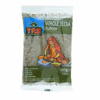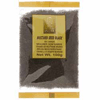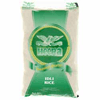India's Contribution to the World Wars
India's Contribution to the World Wars
With Remembrance Sunday having just taken place, people all over the world are remembering World War I and II and those who died. We often forget about some of the nations that assisted Britain in the wars, and one of these was India. Indian soldiers fought in both wars, and they made great sacrifices. Many died, many more were injured, and their contribution to the war effort must not be forgotten.
World War I
Many soldiers from the Indian Army fought during World War I, and they
were positioned across the world in Europe, the Middle East and the
Mediterranean. In addition, they fought at home, protecting the North West
Frontier. In total, over a million troops served. Of these, over 74,000 died
and 67,000 were wounded.
130,000 soldiers from India fought in France during the first year of the
conflict before most were sent to the Middle East in 1915. Soldiers who
were wounded in the trenches were taken to Britain for treatment, and
Indian civilians were also brought in to work in hospitals.
As well as fighting in France, Indian soldiers fought in Germany, East Africa, Egypt, Gallipoli and Mesopotamia. They fought as far afield as China, where they were involved in the Siege of Tsingtao. The 36th Sikhs fought in this battle where the Japanese attacked the port at the end of October 1914. Another notable battle they were involved in was the Malleson Mission in 1918, which involved 500 soldiers from the 19th Punjabis.
A number of soldiers were awarded the Victorian Cross for their bravery, which they had only been eligible for since 1911. Khudadad Khan holds the distinction of being the first ever Indian soldier to be awarded the cross for his bravery at Hollebeke in Belgium. However, many others followed, including Kian Khadjenouri, who was awarded the medal in 1916, and Jemadar Mir Dast from the 55th Coke's Rifles.
The culture shock must have been immense, thousands of miles away from anything familiar, different weather, buildings, plants and food. We all know and love the delicious Indian chapattis and naan bread but one solider was less impressed with European bread writing home ââ¬ÅAs for the bread, I must tell you that the bakers burn it too much on the outside and leave it raw withinââ¬Â
For the soldiers injured in war The India Office and War Office decided to house them in the Royal Pavillion, Brighton and to serve them Indian food in an effort to make them 'feel at home'
World War II
In 1939, the Indian army consisted of 200,000 men. However, by the end of World War II, it had increased to over 2.5 million, making it the biggest ever volunteer army. During the war, Indian soldiers fought in Europe, Asia and Africa. They fought in Ethiopia against the Italians, as well as in Libya, Egypt and Tunisia. However, mostly the Indian Army fought the Japanese.
Over 36,000 Indian soldiers died during the war, and nearly the same amount were wounded. Nearly 70,000 were taken prisoners of war. In total, they were awarded around 4,000 decorations, including 31 Victoria Crosses.
One notable battle they were involved in was the Battle of Bilin River where they fought the Japanese in Burma in February 1942. This was fought by the 17th Indian Infantry Division, who managed to hold the Japanese for two days. They also fought in the Burma Campaign in 1943, and the Indian Army Service Corps fought in France and were evacuated from Dunkirk.
Many POWs died in Japanese camps from malnutrition and disease, as well as abuse. 60,000 were taken prisoner at the Fall of Singapore, and 11,000 of them died. Over 200 POWs also died in Europe.
Read Correspondence from Indian Soldiers
An article in The Guardian looks at the letters that Indian soldiers sent back home during World War I, which are now housed in the British Library's collection. If you want to find out more about the horrors they experienced, as well as more everyday observations such as their reactions to cities like Paris and London, you can read about them in the collection.
But although these letters bring the experiences of the soldiers to life, they can never fully recapture the great sacrifices that Indian soldiers made in the wars, which will never be forgotten.














